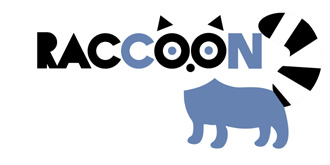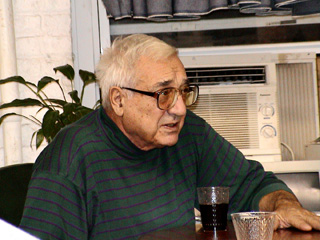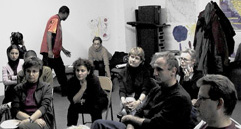718/784-9121
fax: 718/784-1858

| prostor
718/784-9121 fax: 718/784-1858 | 
|
 On November 23, Raccoon held the roundtable with Bogdan Denitch: Democratization - the rise of the nationalist parties and prospects in former Yugoslav states. Nationalist parties are on offensive amidst attempts on denazification in Serbia, Croatia and Bosnia. Bogdan Denitch is Professor Emeritus of Graduate Program in Sociology at CUNY Grad School, President ToDa (Center for Transitions to democracy in Croatia, Bosnia and Serbia), and President of the "Socialist Scholars Conference in New York"
On November 23, Raccoon held the roundtable with Bogdan Denitch: Democratization - the rise of the nationalist parties and prospects in former Yugoslav states. Nationalist parties are on offensive amidst attempts on denazification in Serbia, Croatia and Bosnia. Bogdan Denitch is Professor Emeritus of Graduate Program in Sociology at CUNY Grad School, President ToDa (Center for Transitions to democracy in Croatia, Bosnia and Serbia), and President of the "Socialist Scholars Conference in New York"
|
While what-to-do-with-sovereignty is an obvious conundrum for both ruling and opposition politicians in the nascent wanna-be democracies, suggesting that an outright occupation and colonialization would be so much more better misses one important point: the hypothesis that the West may have its own ulterior motives, which may not be benevolent to the region, was never completely and successfully discarded.
Croatia went ‘the full turn’ of many a Eastern European society, getting back in power the same communist aparatchiks, renamed as social-democrats, but, as Bogdan humorously noted, still thinking of social-democrats in the bolshevik fashion - that they are sell-outs and capitalist lackeys. Racan sure behaves like one. His opposition, however, is not your classic Christian-Democrat conservatives, but the nationalist, ethno-fundamentalist, so to say, right. The one that would never even consider co-operating with The Hague. The one like it is in power in Serbia. Where nearly a quarter of electorate voted for a fascist candidate, backed by Milosevic’s version of social-democrats. |
|
 One would wish that the military staged a coup in 1989 or 1990, arrested all secessionist leaders and called federal elections within six months. That did not happen. Instead, military went along with one of the secessionist leaders and engaged in crimes against humanity in his name. Now, it may look acceptable that NATO assumes the role of Yugoslav Army and force-feed democracy into the recalcitrant, boney, Balkan heads. But if one retrace activity of the ‘international community’ in the first five years since Milosevic took power in Serbia, one may question their good intentions.
One would wish that the military staged a coup in 1989 or 1990, arrested all secessionist leaders and called federal elections within six months. That did not happen. Instead, military went along with one of the secessionist leaders and engaged in crimes against humanity in his name. Now, it may look acceptable that NATO assumes the role of Yugoslav Army and force-feed democracy into the recalcitrant, boney, Balkan heads. But if one retrace activity of the ‘international community’ in the first five years since Milosevic took power in Serbia, one may question their good intentions.
 It is also questionable whether the third post-Yugoslav society, the one that was stripped off real sovereignty, Bosnia, fares much better. In fact, it is at the very bottom of GDP per capita in Europe table - one notch above Moldova. One of its constituent ethnic group (Croats) have double citizenship. Another (Serbs) run their own state within a state. Voters vote for their ethnic parties. And a pile of war criminals is still at large, just as they are in sovereign Serbia and sovereign Croatia.
It is also questionable whether the third post-Yugoslav society, the one that was stripped off real sovereignty, Bosnia, fares much better. In fact, it is at the very bottom of GDP per capita in Europe table - one notch above Moldova. One of its constituent ethnic group (Croats) have double citizenship. Another (Serbs) run their own state within a state. Voters vote for their ethnic parties. And a pile of war criminals is still at large, just as they are in sovereign Serbia and sovereign Croatia.
 This all apparently regardless of whether they are governed by fascists, "social-democrats", or the ‘international community.’ The solution, therefore, cannot really be imposed “from above” - it was tried and it is failing in Bosnia, it is not making much progress in Kosovo. It has to come from below, from a process of various grassroots initiatives of citizens, which in a hopefully more open political and media space would transform those societies.
This all apparently regardless of whether they are governed by fascists, "social-democrats", or the ‘international community.’ The solution, therefore, cannot really be imposed “from above” - it was tried and it is failing in Bosnia, it is not making much progress in Kosovo. It has to come from below, from a process of various grassroots initiatives of citizens, which in a hopefully more open political and media space would transform those societies.

